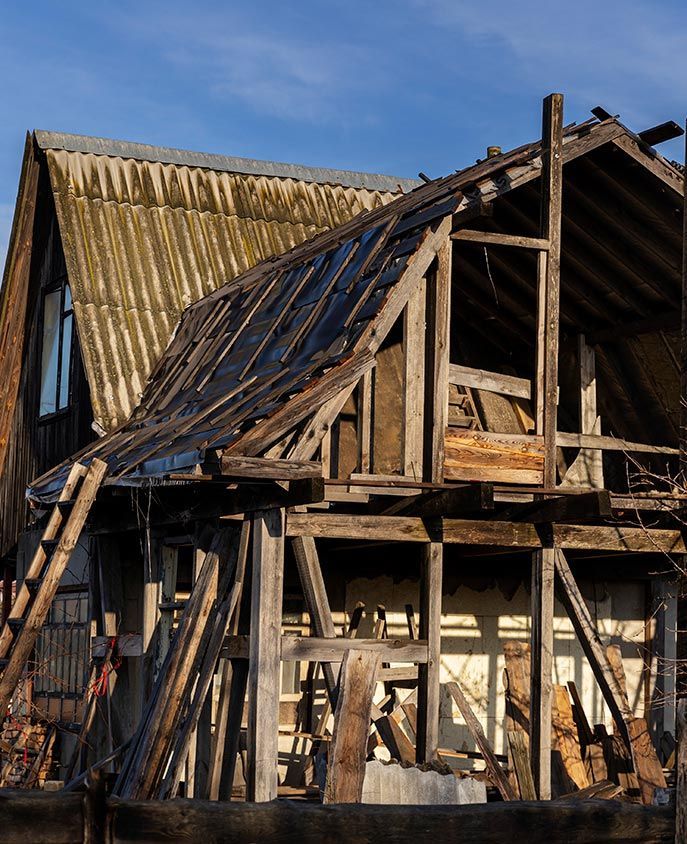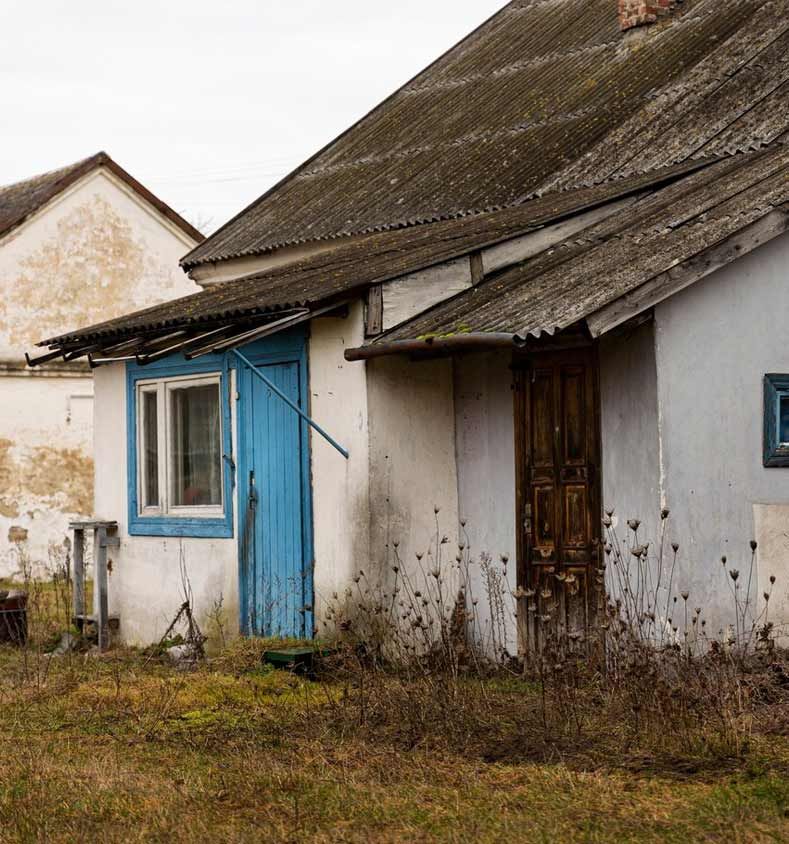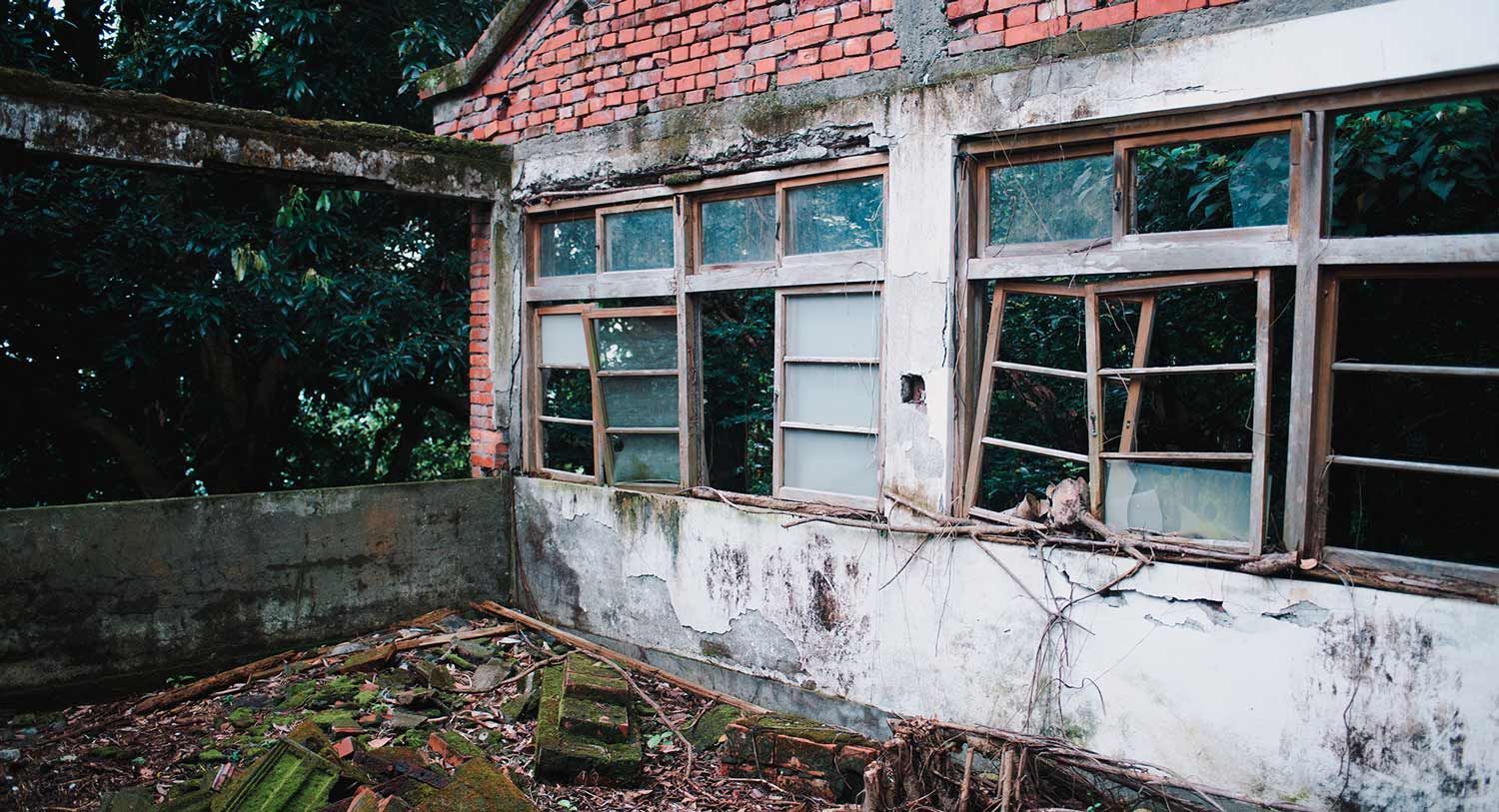WHAT TO DO AFTER A HOUSE FIRE: A COMPLETE CHECKLIST In Connecticut
Published on October 7th, 2023
Free Offer Form
We will get back to you as soon as possible.
Please try again later.
Experiencing a house fire can be a devastating and emotionally overwhelming event that no one ever expects to endure.
In the chaotic aftermath, emotional distress and practical challenges can leave individuals feeling lost and unsure of what to do next.
Worry not; we are here to support you through this 12-step house fire checklist for post-fire recovery for rebuilding and healing.
Immediate Response: First Steps after a House Fire In Connecticut
This section provides a full roadmap for navigating the aftermath of a home fire, ensuring safety, and preparing for recovery, including contacting authorities and insurance companies.
Ensuring Everyone's Safety and Health
The first step is to evacuate safely, alert others, and not re-enter the building.
Be sure to observe anyone who may be suffering from smoke inhalation. Inhaling smoke and soot can lead to health risks and exacerbate health conditions.
Take care of your pet too. Remember to get your pets checked by a veterinarian after a fire.
Contact your loved ones and seek medical attention if necessary. Secure your personal property to prevent further damage.
If your home is uninhabitable, find temporary housing and contact local disaster relief services or organizations. Document the fire damage on your fire reports and stay informed about the situation.
Contacting Essential Services
Next, report the fire and request immediate assistance from the local fire department and emergency medical services.
Afterward, contact family and loved ones, notify your insurance agent, and contact a local disaster relief agency like the American Red Cross or Salvation Army. If they haven't arrived yet, follow up with the fire department.
Your main concerns are clearing any standing water and securing the home by covering windows and doors.
When contacting essential services or selling your fire-damaged property after the incident, it's crucial to provide accurate information about your situation so they can respond efficiently.
Securing Temporary Accommodation
Consider searching for hotels, motels, extended stay facilities, or staying with family members during this time.
For additional living expenses, you can ask your insurance agent about vouchers you can give your hotel or motel and the reimbursement period.
Address your finances. You might need to resume any car payments and substitute any credit or debit cards that may have been damaged in the house fire.
Secure your damaged property by boarding up windows and doors, locking them, and notifying your landlord or property manager.
Protect your home as much as possible from weather and unlawful entry.
Before reoccupying the house, investigate for any small fires. Any soot, smoke, ash, and burned objects must be professionally removed from the property.
IMPORTANT: After a house blaze, consider factors like live electricity, damaged structures, collapse risk, and asbestos contamination to ensure safety, and consult your insurance agent for advice.
Next Steps: Reporting the Fire and Filing Claims In Connecticut
After reporting the house fire to the authorities, the next step is to handle your house fire insurance claims with your insurance agent's help to begin the rebuilding process.
This section covers reporting a house fire, filing insurance claims, documenting the incident, assessing further damage, and navigating the insurance process.
Reporting the Incident to Authorities
After your house burns down, notify the fire department and relevant authorities. Document the incident, contact insurance, file a report, and cooperate with the authorities.
It is essential to read and understand your homeowners' insurance policy in advance to know what is covered and what is not—document photos and videos of the fire scene and any injuries or casualties.
File a fire report with the fire department and discuss the possible repair costs with your insurer.
Contacting Your Insurance Company
Gather and document info and conversations before you contact your insurance agency. This will help when you initiate the claims process after the incident.
Follow instructions provided by your homeowners' insurance carrier, including submitting an insurance claim form, obtaining repair estimates, or meeting with an adjuster.
Keep records of correspondences like emails, insurance claim forms, receipts, and other important documents to maintain a clear record and provide evidence if needed.
Give your insurance agency a copy of the fire report. Ask the fire department that arrived at your home for it.
Your insurance company may already be aware of the damage to your home, but they must authorize any repairs before you begin work.
Items destroyed in a house blaze may be covered by insurance, but check your insurance policy to confirm.
Documenting the Damage
Take high-quality photos and videos of the affected area, including close-up shots of damaged personal items and visible signs of fire, heat, smoke and soot, water, or structural damage.
Maintain a thorough inventory of damaged or destroyed household items, document damage, and work with professionals to ensure proper documentation and initiate claims with insurance companies.
Recovery Process: Restoration and Rebuilding In Connecticut
This section covers the restoration process and discusses the proper steps to clean up after a fire and rebuild afterward.
Hiring Fire Restoration Services
Your home must typically be professionally cleaned to remove any traces of smoke damage and dangerous chemicals. This is where fire restoration services come in.
Professional fire restoration services know how to handle fire, smoke, and water damage. They can work closely with your insurance company to expedite the claims process.
Hiring experienced fire and smoke damage restoration companies allows you to navigate this challenging period more smoothly.
Restoration companies employ trained cleaners and specialized equipment to eliminate all traces of smoke from your house.
Rebuilding the Damaged Area
Follow this quick post-house fire checklist.
- Safety assessment
- Obtaining necessary permits
- Design and planning
- Restoration company selection
- Budgeting and financing
- Materials and supplies procurement
- Demolition and debris removal
- Foundation and structural work
- Utilities and infrastructure
Safety assessment ensures the site is safe for workers and residents while permits and approvals are obtained from local authorities.
Collaborate with architects to create a new floor plan, and remember to select contractors who are experienced with fire restoration.
Emotional Recovery: Coping with Loss and Trauma

This section explores coping strategies and support for those navigating this challenging path toward healing and renewal.
Dealing with Emotional Trauma
House fires can be emotionally draining and challenging, leaving deep emotional scars. Even a small house fire can have a devastating effect on most homeowners. It's perfectly normal to feel that way.
To manage trauma and stress caused by the blaze, prioritize emotional support, self-care, financial management, and future planning.
Seek medical attention or help from a mental health professional if necessary. Acknowledge your emotions, such as shock, anger, sadness, and anxiety, and allow yourself to feel and process them.
Make financial and practical considerations by understanding your insurance coverage and managing expenses. Plan for the future and be patient with yourself, as emotional recovery is gradual.
Seeking Support: Counselors and Support Groups
Lean on your support network, such as neighbors, friends, or family. Consider joining support groups for a safe place to work through the trauma.
To find a counselor, search for mental health professionals specializing in trauma, grief, and loss.
Look for support groups specifically designed for survivors or those who have experienced similar traumas.
Peer support can provide a unique perspective and emotional connection. Attend regular meetings, share and listen to others' stories, and learn coping strategies.
Remember to continue practicing self-care activities and strategies outside of sessions. Take a step by seeking support after a house fire to begin healing and rebuilding your life after the event.
Preparing for the Future: Fire Safety and Prevention Measures In Connecticut
The section discusses practical tips for creating a safe place and minimizing fire risks.
Installing Fire Safety Equipment
Fire safety equipment includes smoke detectors, fire extinguishers, fire alarms, sprinkler systems, and fire-resistant building materials.
When rebuilding your home, prioritize using fire-resistant building materials, such as insulation, doors, and coatings, to protect structural integrity from further risk.
Remember to also make a fire safety plan. It should outline evacuation routes, assembly points, and procedures for notifying emergency services.
Regular Checks and Maintenance
Regularly inspect and maintain your systems to ensure the equipment is in working order.
Documentation, compliance with codes and standards, emergency response planning, professional inspection, and budget considerations are essential.
Routine checks and maintenance of these systems are crucial for their reliability and effectiveness in preventing and responding to fires.
Case Study: Recovery Journey after a House Fire In Connecticut
"All the big decisions in life are before you," says survivor Gary Jones. Gary Allison Jones lost everything in the Woolsey Fire on November 8, 2018, causing rapid destruction in Agoura Hills.
He ignored evacuation warnings and was, unfortunately, trapped behind a metal gate. Despite the tragedy, Gary remains resilient and positive and is now focused on creating new memories.

Frequently Asked Questions
Still have questions? This section will help you make informed decisions and take meaningful steps toward recovery.
How Long Does the Recovery Process Take After a House Fire?
The delay to move back after fire can alter significantly depending on the extent of the fire damage and any water damage.
It can take several months to over a year to mentally recover and fully recover your property to pre-loss condition after a significant fire.
What Items Do I Need Immediately After a House Fire?
After a house fire, some items you may need immediately include:
- Identification documents (e.g., birth certificates, passports, social security cards)
- Medications and medical supplies
- Clothing and personal hygiene items
- Phone and charger
- Home insurance information
- Important financial documents
- Cash or debit/credit cards
- Essential contact numbers
- Basic toiletries and hygiene items
These items can help you address your immediate needs and begin the recuperation process.
How Do I Deal With the Emotional Trauma After a House Fire?
Dealing with emotional trauma after a house fire involves:
- Seeking professional help from therapists or counselors.
- Connecting with support groups or friends.
- Allowing yourself to grieve and process emotions.
- Practicing self-care through mindfulness and relaxation techniques.
- Focusing on rebuilding routines and a sense of normalcy.
- Maintaining social connections.
- Being patient with yourself and acknowledging your feelings.
How Do I Begin the Process of Rebuilding My House After a Fire?
Here are the steps to recover and rebuild your house after a fire:
- Contact your homeowners' insurance company to report the incident and initiate the claims process.
- Hire a qualified fire restoration company to assess the fire damage and create a restoration plan.
- Secure any necessary permits and approvals from local authorities.
- Work with restoration services to develop a detailed timeline and budget for the rebuilding project.
- Begin the restoration process, including debris removal, structural damage repair, and renovations.
- Communicate regularly with the restoration company, and monitor progress throughout the entire process.
- Ensure the rebuilt home meets safety and code requirements.
How Do I Ensure This Doesn't Happen in the Future?
To prevent a future house fire:
- Install and maintain a fire detector and smoke alarm.
- Keep a fire extinguisher in accessible locations and know how to use it.
- Practice safe cooking and kitchen habits.
- Store flammable materials and chemicals properly.
- Develop and practice an escape plan with your family.
- Conduct regular home drills.
- Avoid smoking indoors.
- Use candles and open flames cautiously.
- Educate family members about safety and prevention.
Conclusion
In the face of a devastating house fire, the path to recovery may seem daunting, but it's crucial to remember that you're not alone in this journey.
Now that we've discussed what to do after a house fire, you're aware of the critical steps, from keeping your loved ones safe and contacting authorities, to rebuilding and emotional recovery.
Remember to create a strategic plan to navigate this challenging chapter, and know that knowledge and preparedness can empower you to make the right decisions.
Following these steps and staying resilient can reclaim your own home, life, and sense of security.
In the face of adversity, remember that hope and help are always within reach, and you have the strength to overcome this chapter and build a brighter future.
Free Offer Form
We will get back to you as soon as possible.
Please try again later.
Want to sell a fire damaged home, we buy all over ct
List of Services
-
Bridgeport
-
Stamford
-
New Haven
-
Hartford
-
Waterbury
-
Norwalk
-
Danbury
-
New Britain
-
Bristol
-
Meriden
-
West Haven
-
Milford
-
Middletown
-
Shelton
-
Norwich
-
Torrington
-
Naugatuck
-
New London
-
Ansonia
-
Derby
-
Greenwich
-
West Hartford
-
Fairfield
-
Hamden
-
Manchester
-
Stratford
-
Wallingford
-
Southington
-
Enfield
-
Groton
-
Trumbull
-
Glastonbury
-
Newington
-
Vernon
-
Windsor
-
Cheshire
-
Mansfield
-
New Milford
-
Branford
-
East Haven
-
Newtown
-
Westport
-
Wethersfield
-
South Windsor
-
Farmington
-
Ridgefield
-
Simsbury
-
Windham
-
North Haven
-
Watertown
-
Guilford
-
Darien
-
Bloomfield
-
Rocky Hill
-
New Canaan
-
Bethel
-
Berlin

